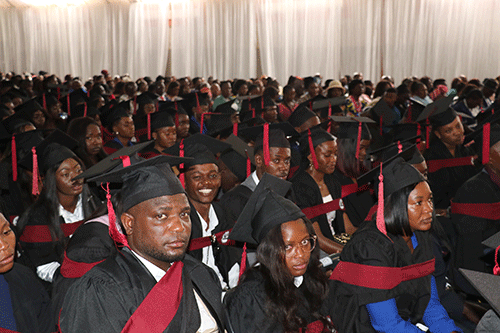KATIMA MULILO – The University of Namibia’s Katima Mulilo campus last week conferred qualifications on 409 students graduating in various fields, such as health, accounting, agriculture, law, education, veterinary medicine and human resource.
Speaking at the event, higher education minister Dr Itta Kandjii-Murangi said investment in human capital is critical for the development and future of any nation.
“It is through targeted investment in our people that our country can produce a productive workforce that will deliver real outcomes that will reduce poverty and achieve sustainable economic growth and prosperity for all.”
Kandjii-Murangi congratulated the graduates for their hard work and dedication throughout their academic years.
On his part, Unam vice chancellor Professor Kenneth Matengu said they are graduating over 300 teachers, of whom close to 70% are female, which is a very good thing.
However, he asked, “where are the boys?”
Matengu stated the institution is not just putting bodies into the system but is injecting skills the university expects will change the circumstances wherever they go.
“They (skills) must be meaningful; they must have an impact, and so you have to ask yourself as a teacher, ‘Will I just go to work and see learners, or will I actually be the one complaining that there are no textbooks?’” he said.
“People don’t learn from textbooks; they learn by your application of the syllabus – and what you put to them should be challenging enough – not the questions of how many rivers are in the Zambezi.”
Matengu added that those are not the questions Unam expects their graduates to ask, explaining that they expect them to ask questions such as, ‘How does decolonisation affect policy making’.
He further stated that one can only be able to succeed if one combines wisdom principles and skills.
“Success is achieved through continuous self-reflecting,” said the vice chancellor. – mkambinda@nepc.com.na



